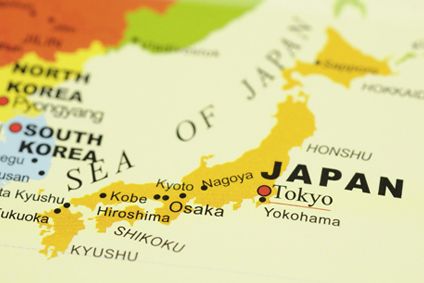
The trade agreement between the European Union (EU) and Japan is on track to enter into force in February 2019 after being approved by the European Parliament.
The EU-Japan Economic Partnership Agreement (EPA), which has already been ratified by Japan’s National Diet, will create an open trading zone covering 635m people and almost one-third of the world’s total GDP – and will eventually eliminate all tariffs on textiles and clothing.

Discover B2B Marketing That Performs
Combine business intelligence and editorial excellence to reach engaged professionals across 36 leading media platforms.
“Our economic partnership with Japan – the biggest trade zone ever negotiated – is now very close to becoming a reality,” said Cecilia Malmström, EU Commissioner for Trade. “This will bring clear benefits [that] also go hand in hand with a commitment on both sides to uphold the highest standards for our workers, consumers and the environment.”
Once in force the EU-Japan Economic Partnership Agreement will remove the vast majority of the EUR1bn (US$1.13bn) of duties paid annually by EU companies exporting to Japan.
Specifically, the deal will eliminate around 99% of tariffs on Japanese goods sold to the EU, and 94% of tariffs on EU exports to Japan, rising to 99% in the future.
Japan says it will immediately cut tariffs on chemical, industrial and textile products. Under the deal, EU exports to Japan of textiles and apparel could more than double.

US Tariffs are shifting - will you react or anticipate?
Don’t let policy changes catch you off guard. Stay proactive with real-time data and expert analysis.
By GlobalDataNegotiations on the pact between Japan and the EU started in 2013 , with the agreement signed at the EU-Japan Summit in July. While its entry into force also requires the ratification by EU Member States, “a large part of the Agreement can be applied on a provisional basis already in early 2019,” the EU says.
For the Federation of the European Sporting Goods Industry (FESI) – which represents European ski boots and sports footwear companies – the deal has been a long time coming.
“Five years after the official launch of the negotiations, FESI is pleased that the European Parliament has given its consent to this trade agreement, which will significantly increase trade between the EU and Japan,” says Frank Dassler, FESI president.
“FESI has been very active in making sure that footwear quotas and import duties on ski boots are continuously part of the negotiations and we are proud that we have succeeded.”
Indeed, the ski boots industry currently faces a 27% import duty in Japan and 17% in Europe, which means that European ski boots companies are paying almost EUR20m in import duty every year.
The new EPA will eventually remove almost all tariffs on goods, which constitutes “a real breath of fresh air for our sector, and will also be beneficial for all Japanese consumers purchasing European-made ski boots,” according to Rene Harrer from Head company and FESI’s ski committee chairman.
From the first day when the agreement enters into force, duties on ski boots will be reduced to 24.5% and in ten years they will be completely removed (with a gradual decrease of 2.40% or 2.50% per year).
According to the re:source by just-style sourcing tool, the value of EU apparel (HS Chapters 61 and 62) imports from Japan totalled US$49.5m in 2017.





